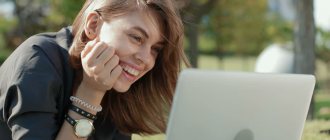By the age of 20, you may have already gained some experience in love: you broke the heart of another, yourself, suffered, healed, almost got married, but came to your senses - maybe more than once. Now, when a new romance begins, you can call it another and cross out the stages in your notebook: the first date, the third, the first joy shared, the first time you slept together, the first time you understood each other without words. The first debate is about what doesn't belong on the kitchen table (oh my god, again?).
It's not about sex, but about love and its quiet tenderness. We expect only good things from love: common breath, understanding, consolation, unquenchable passion and a strange feeling that this person is your home. We expect so much that sometimes we avoid feeling out of fear that nothing will work out. But the main disappointment lies ahead: falling in love is not as difficult as accepting that it’s all over (Lord, again?).
No one goes into a relationship planning for a future of petty squabbles, losing respect for each other, and trying to figure out the last time you had sex. No one rubs their hands with the thought: “Hurray, I know that later passion will give way to sluggish friendliness, and then devastation will come!”
This is the great mystery of love: it begins as if it were the last time, and ends as if it were collapsing for the first time. But you’re not surprised when another couple breaks up nearby, are you? Because she's not yours.
Where do bright feelings come from?
The most important role in the generation of passion and intense romantic feelings is played by The neurobiology of love, dopamine, writes Semir Zeki, professor of neurobiology at University College London. By acting on certain receptors in the brain, this neurotransmitter motivates Mesolimbic Dopamine Signals the Value of Work us to fulfill our desires and achieve goals - usually they are associated with something useful for life. For example, with reproduction (respectively, the desire to acquire an object of passion) or with obtaining new knowledge, impressions, experience: the better you know the situation and the more you can do, the higher the chances of survival.
Dopamine is associated with the joy of new experiences, travel, overcoming danger, the desire to grow in salary and my desire to finish this article. Dopamine and monogamy dopamine receptors D2 are responsible for our love impulses - they are backed up by D1, which block interest in other potential partners.
So, we abandon friends, lose productivity, cannot tear ourselves away from each other, orgasms make our vision darken. But this is temporary.
What are the signs?
Recognizing a person in love is quite simple ; the following signs help:
- obsessive thoughts about the object of adoration,
- frequent mood swings,
- insomnia,
- rash acts,
- redness of the face when the object of adoration appears in the room,
- loss of appetite,
- "glitter" in the eyes,
- cardiopalmus,
- anxiety, shyness.
In addition, a person partially loses the ability to think logically. He makes rash decisions and does stupid things.
It can be very difficult to concentrate on anything. Some people are drawn to creativity. They become inspired to write poetry, music, and paintings.
Signs of falling in love:
Why do feelings cool down?
Over time, the sense of novelty wears off. And your usual partner is always at hand - there is no longer a need for dopamine motivation to win him over. This neurotransmitter, of course, continues to be released, but not in the same quantities.
As a result, the passion fades somewhat, feelings are no longer so burning, and someone may even be drawn to flirt with someone else.
Sex training presenters speculate on this topic, calling for feigning inaccessibility. There is some truth in these words, except that in close relationships you usually don’t bother and create an obstacle course on the way to the bedroom.
It is important that dopamine-induced activity in some areas of the brain is associated with a decrease in the functioning of others: for example, the ability to critically evaluate a partner is suppressed. When the euphoria of love wears off, you know what happens.
When the masks fall off
But the role, the game, does not last forever. The time comes and the person takes off the mask, deciding to take a break from the role. So what happens next? The scales fall from my eyes. We begin to notice that our ideal lover is not at all as ideal as he seemed to us. We feel disappointed. We feel deceived! After all, we started a relationship with one person, and now we have a completely different person in front of us. And it doesn’t matter that we invented the first one ourselves and it existed only in our dreams - we demand that our lost dreams be returned to us, because reality seems to us much more insipid and ordinary... Love passes before it even begins.
How love changes over time
If the subsiding dopamine wave has not revealed a pile of garbage on the shore from misunderstanding and disappointment, then it makes sense to talk about vasopressin and oxytocin. They are your invitation cards to a cozy family life.
These social molecules form THE ROLE OF OXYTOCIN AND VASOPRESSIN IN ATTACHMENT related warmth, tenderness, and give a feeling of calm and security next to loved ones. Oxytocin is released at the dating stage, plays a big role in the formation of attachment and, unlike dopamine, does not leave you after a year of relationship.
Oxytocin is especially active in women (it is associated with maternal feelings and is involved in lactation), and in men vasopressin, which is chemically similar to it, plays an important role. It forms paternal feelings and “turns on” care, as well as aggression towards other candidates for a partner. Women are also familiar with the feeling of vasopressin ownership, although to a lesser extent.
A strong surge in oxytocin and/or vasopressin is detrimental to dopamine, according to Daniel Lieberman, a psychiatrist and author of the book Dopamine: The Most Essential Hormone. This is partly why immediately after the birth of a child you usually don’t really want sex. But moderate concentrations of these substances promote the release of SERIAL MONOGAMY AND CLANDESTINE ADULTERY dopamine, which is associated with arousal, notes Rutgers University anthropologist Helen Fisher.
In long-term relationships, areas of the brain associated with sympathy are also activated. Friendship The Anatomy of Friendship relies on them, which is accompanied by the release of opioids and endorphins (they act Endorphins on opioid receptors).
Like vasopressin and oxytocin, in moderate quantities these substances additionally activate Oxytocin Enhances Brain Reward System Responses in Men Viewing the Face of Their Female Partner dopamine (and with it sexual desire). Therefore, strong friendship is a component of passion. And also loyalty. According to the article The Influence of Endogenous Opioids on the Relationship between Testosterone and Romantic Bonding by researchers at Oklahoma State University, friendship-related opioids appear to lower testosterone levels in both men, but especially so in men because they naturally have more testosterone ( By the way, vasopressin and oxytocin have a similar effect). Meanwhile, this hormone is tightly intertwined with sexual desire and supports the desire to find someone to procreate. Those who are in successful relationships, and especially those who are raising children, have lower testosterone levels than those who are single.
But in men (less often in women), who lack something in the family, testosterone increases, they begin to desire intimacy more strongly. And given that not everything is going well in a relationship, they often resort to connections on the side, experts conclude.
This should not be taken as an excuse for cheating.
In the end, successfully married people can cheat even with low testosterone, but those with high concentrations can still remain faithful. Because cheating is primarily a choice, not biology.
Why start if it's all over?
Some decide never to participate in this circus again. A pony doesn't want to run around in circles, especially a pony on antidepressants: Scientists suggest that selective serotonin reuptake inhibitors (a group of third-generation antidepressants developed to treat anxiety disorders and depression), if taken for a long time, can suppress both libido and the ability to romantically love and stable long-term relationships.
Romantic love is not only a high feeling. This is still a low level of serotonin, due to which you cannot get rid of obsessive thoughts (the same symptom manifests itself in patients with obsessive-compulsive disorder) about your lover. We treat anxiety or OCD with antidepressants, and at the same time love fever.
Thank science, now you can use contraception and not get married. Perhaps leaving the relationship is a great idea?
Maria, 31, personnel development specialist:
“Now I’ve been single for two years, and I plan to abstain from relationships for at least another year. After a failed romance, I turned to a psychotherapist and during the course of therapy I realized that romantic relationships are greatly overrated. At least, what they sing under their guise: “I can’t live without you,” “you are my whole world,” “we are one,” “there is no life without love.” When you need to constantly sacrifice something, endure, be good and please.
I don’t know where I got this relationship model from. Maybe the fact is that my mother always considered other people better than herself and passed this belief on to me: I believed that I was just a person, and men were ideal heroes. Now I’m learning to see them as ordinary people, not to give if I don’t see a return, to satisfy my needs. I ignore when someone shows romantic or sexual interest in me: I do not separate these two concepts.
If they ask how my personal life is, I tell them about my decision to temporarily abandon the relationship. Someone is sympathetic - most often those acquaintances who are undergoing psychotherapy. Others begin to say that it’s time to hook up with someone, get married, have children. In the summer I visited relatives in a small town - when most of the women met, they looked to see if there was a ring on my ring finger, and sympathetically asked how it happened that I was still not married.”
Timofey, 28 years old, director of public relations, streamer on Twitch:
“I’ll emphasize right away: I’m not a misogynist, I don’t attach labels to anyone and I’m talking exclusively about my personal experience.
When my long and serious relationship ended three years ago, I decided that I would no longer be bound by it. I no longer want to experience the feelings of pain, humiliation or fear that somehow accompany a relationship. You are constantly forced to adapt to your partner, look for ways to reconcile if you quarrel, and do not manage your own time and desires. Sooner or later, your partner begins to demand that you sacrifice your personal space, abuses you, and in a completely creepy way, gaslights you and all the time declares: “A man owes it!” (most often money). In addition, like many people, it is difficult for me to find a person with whom it would be truly interesting.
When a girl I like shows romantic interest in me, I honestly say that there will be no relationship. I didn’t refuse sex, so I can offer her “friendship with benefits,” but nothing more. I don’t want to hurt anyone or take advantage of anyone, so I try to negotiate on the shore.
I must admit that many people react ambiguously to my position. If someone advises me to find a girlfriend, I always ask the same question: why? Living alone is cool. Very. If anything, I cook pretty well, I know how to wash and clean, I even know how to sew... And even if I couldn’t, that’s not why they get a girlfriend. Mentally, I get more from my favorite job and friends. In my opinion, at my age a man should generally be interested in only three things: career, business and money. And the rest will follow.”
What is long-term love based on?
Apparently, it is thanks to friendship that science knows people who celebrate a pink wedding in a kind of dopamine euphoria. A group of scientists from the already mentioned Rutgers University studied the Neural correlates of long-term intense romantic love of couples who had preserved love and passion almost in their original form over the years, and analyzed their relationships. It turned out that the partners were connected by close friendship and the ability through it to influence each other’s personal growth.
This implies not just a comfortable existence, but the presence of common interests, views, a desire to do something together, to develop in the same direction.
The logic is simple: the release of dopamine, which causes passion, is facilitated by many pleasant, interesting and useful things that you can do together with a like-minded partner. It's also usually fun to be with him.
What prevents you from separating when you don’t love your husband and making a firm decision about divorce?
Fear and pity are the main culprits of doubt when making a decision to separate when the love for your husband has passed.
- Fear about how I will live after divorce?
- What will happen to me, and will I cope?
- There is some fear of loneliness now, but husband, who will need me with children or at that age?
- I feel incredibly sorry for the years I have lived, my energy and time spent on my husband and family.
- I feel sorry for myself that I couldn’t look at the man I once married.
How common hobbies transform into desire
According to the two-factor theory of emotion and the Excitation-transfer theory, the brain has an interesting tendency to interpret average-intensity sensations depending on the context. This was first proven in an experiment with two bridges. Two groups of men walked across different bridges: a stable one and a shaky one. In both cases, the participants were met by an attractive girl who asked questions from the questionnaire and left her number. Men who met a girl on a dangerous bridge called and made an appointment more often.
Researchers believe that in a relatively safe situation, the brain is able to mistake mild fear for excitement (if there is someone exciting nearby) and happily spend the produced dopamine on it. This may work with other stimuli and neurotransmitters as well.
In another experiment, Enhancement of Experienced Sexual Arousal in Response to Erotic Stimuli Through Misattribution of Unrelated Residual Excitation, subjects from different groups first received physical activity - light, moderate and strong - and then watched erotica. Participants in the second group became aroused the fastest. The remnants of excitement caused by sports, at the right opportunity, were transformed into sexual desire.
How to revive passion and strengthen feelings
So, here is a list of the main factors that influence the formation of dopamine passion. Notice how often these things happen in your life. If not, use the list as a guide to improve your relationship.
Create, develop and share your experience
As already mentioned, researchers note that in long-term happy relationships, in addition to friendship, personal growth plays a role. This idea was even turned into a whole theory of self-expansion (Self-Expansion Theory). According to her, if a partner contributes to new experiences, this strengthens love and passion. You can take the theory literally: a person expands your knowledge and skills, opens up new horizons for you, brings something new to life, supports your ideas and helps you realize them. From a biological perspective, it raises your awareness of the world and how to make life safer and more prosperous to a new level.
So travel (our evolutionary roots encourage the exploration of new territories), learn something together, helping each other (it is important that it is really interesting for both), run a common business, and so on.
Focus on novelty
Everything new is also surrounded by a dopamine flair - for the brain it is also a new experience, even if it does not develop you as effectively as a new book, a startup or a trip abroad.
Give gifts, change your favorite places for walks with new locations. Role-playing games with dressing up also give off something new, don’t they?
Indulge in extreme sports (but in moderation)
With very vivid sensations, the brain no longer confuses the stimuli - in the experiment described above, the men just walked along a bridge swaying in the wind.
In movies, we often see how a couple who have survived troubles unite in a kiss. At the moment of danger, we have no time for romance, but when it recedes, dopamine takes over. It is needed to calm down Dopamine neurons drive fear extinction learning by signaling the omission of expected aversive outcomes, the feeling of fear when everything is behind. If it weren’t for him, we would have been shaking for hours after the harmless rustle that frightened us.
Solve common problems
This activatesTHE ROLE OF OXYTOCIN AND VASOPRESSIN IN ATTACHMENT oxytocin and vasopressin, which enhance attachment. According to the theory of self-expansion, close people perceive their partner’s problems as their own, which means they are ready to participate in solving them.
Don't blame your common troubles on your partner. Help him cope with difficulties and seek help yourself.
Reviews
My love went away after about 8 years, only the habit remained.
smurfette
https://www.woman.ru/relations/marriage/thread/4296117/
We have been together for 35 years, but now I definitely love my husband more than in my youth. Over the years, you begin to value relationships, treat each other more carefully, and many reasons for quarrels now seem not worth attention.
Guest
https://www.woman.ru/relations/marriage/thread/4296117/
We've known each other for 7 years, we've been living together for 5. I loved him madly, very, very, very much, the love has passed.
Not right away, grievances slowly accumulated, then he didn’t congratulate, then he didn’t give flowers, I’ve already said it directly and hinted and nothing. There were situations in life where he did not support me morally. And he looks at other women, evaluates them and tells me. Anonymous https://lady.mail.ru/forum/topic/proshla_ljubov_1455831608/
Our love ended a month after the wedding, before that we dated for two years, lived together for a year. I can’t say that I don’t love or hate my husband. I like him, he’s good, when he’s in a good mood (he’s often depressed), then everything is great. When the blues attack him, he can simply hang himself.











